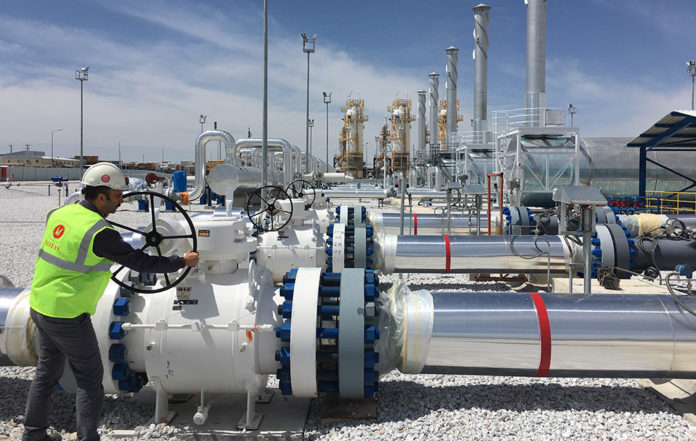Levent Kenez/Stockholm
The Turkish government removed an article from the Turkish edition of an American business news giant that reported on the request of the Turkish government to defer natural gas payments to Russia, Nordic Monitor has found out.
International news agency Bloomberg on Monday reported that Turkish officials have asked Russia to delay a portion of Ankara’s payments due for natural gas, according to people familiar with the matter, as Turkey seeks to mitigate economic damage from higher energy prices.
According to Bloomberg, Turkey’s state-run energy importer BOTAŞ is seeking to postpone some of the payments until 2024, according to one of the people, who spoke on condition of anonymity as the payment discussions are private. The talks come on the heels of a deal between the two countries that permits BOTAŞ to pay 25 percent of its obligations in rubles rather than dollars.
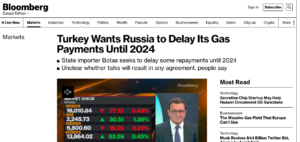
The article also said Turkey’s heavy reliance on imported energy has added to pressure on its currency and budget. The Turkish lira has depreciated more than 28 percent against the dollar in 2022, the most in emerging markets after Argentina’s peso, and its trade deficit more than doubled in August from the same month a year earlier to $11.2 billion.
As expected, the story found wide coverage in almost all media outlets except those supporting the government, spreading rapidly on social media. Economists agreed that such a request was a natural consequence of the downturn of the Turkish economy. Of course, Bloomberg Group’s partner in Turkey, Bloomberg HT, also published the news on its website.
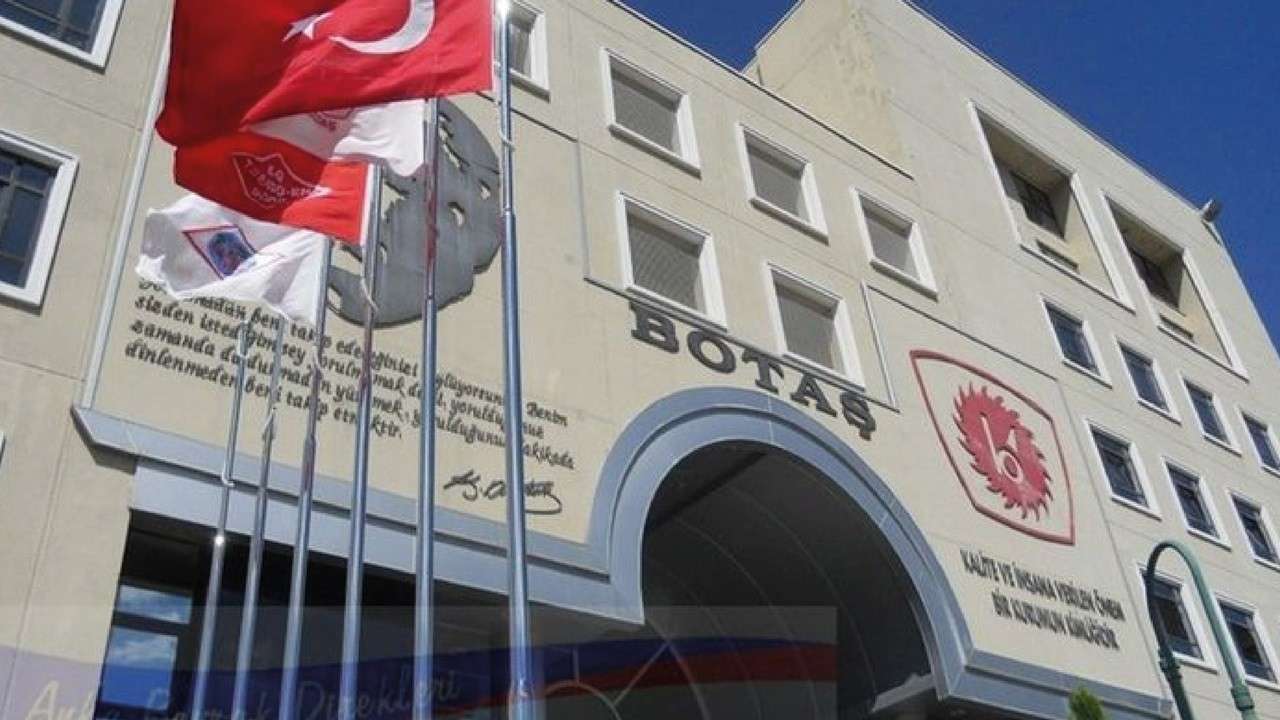
A few hours after the news was published, a source from BOTAŞ spoke to pro-Kremlin Russian media outlet Sputnik, denying Bloomberg’s claim and explaining that BOTAŞ had requested a repricing, not a delay.
The pro-government media, which did not mention Bloomberg’s story, gave extensive coverage to Sputnik. However, the unclear statements of the source in the story and the detail that the final decision will be made during a meeting between Russian President Vladimir Putin and his Turkish counterpart, Recep Tayyip Erdoğan, increased the accuracy of Bloomberg’s claims. For many, it would not be a surprise for Turkey, which has long been experiencing foreign exchange problems, to make such a request given the fact that Hungary this week announced that Russian oil and gas supplier Gazprom would allow it to delay payments for natural gas due in the next six months.
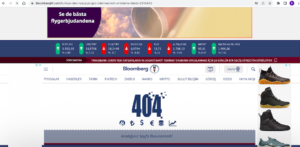
However, the Bloomberg story stating that Turkey has requested a postponement was removed from Bloomberg HT’s website. Nordic Monitor has learned that the story was taken down at the request of government officials. People who click on the news link now see a notification that the page no longer exists.
Many news sites, afraid of the government’s reaction, deleted Bloomberg’s news and published only Sputnik’s story.
Bloomberg HT is operated by the pro-government Ciner media group, which includes the HaberTürk daily and several television stations. The group is owned by Turgay Ciner, who worked closely with former Minister Zafer Çağlayan, who helped Iran evade sanctions and was indicted in the US. Ciner, who was investigated in a 2013 probe in Turkey, got off the hook thanks to the relationship he had forged with Erdoğan.
Nordic Monitor previously reported that Turkish President Erdoğan, facing serious challenges in upcoming elections amid a troubled economy, has turned to Russia for help in boosting cash reserves, rehabilitating his battered image and offering consumers relief with deep cuts in the price of energy.
Talking to reporters on his way back from a Balkans tour in September, Erdoğan revealed ongoing negotiations with Russian President Vladimir Putin about a discount on the price of natural gas. “Russia hasn’t imposed any sanctions on us. I had a talk with him about the price [of gas deliveries],” he told reporters. “If he approaches this positively, then this would be the ‘crème de la crème’ because our goal is to provide as much electricity and natural gas as possible to our citizens under more favorable terms.”
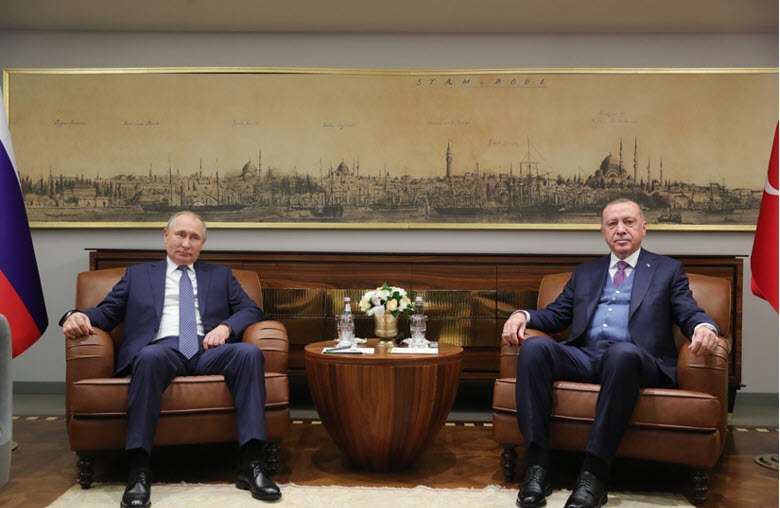
Erdoğan’s government also plans to increase its control over news websites and social media with new legislation submitted to parliament this week. It is no secret that the Erdoğan government, which controls almost all Turkish media, is unhappy with critical content, especially that published abroad, on social media. The new legislation is part of efforts to build a legal mechanism that censors critical posts and videos before the elections in 2023.

